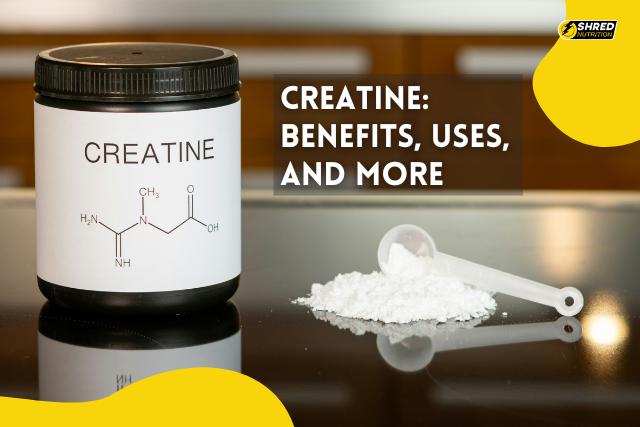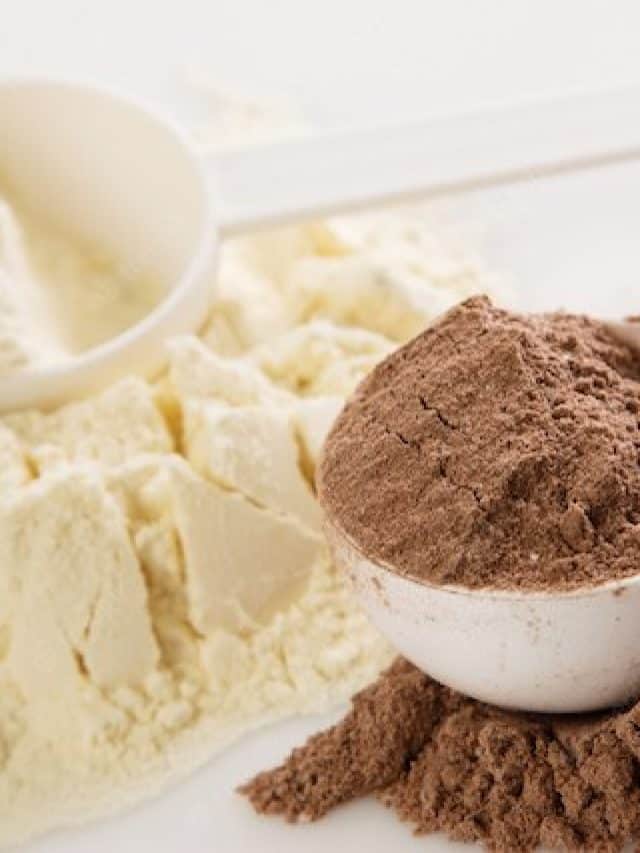
Creatine is one of the most well-researched and popular supplements in the fitness and sports nutrition industry. Known primarily for its role in enhancing physical performance, creatine is widely used by athletes, bodybuilders, and fitness enthusiasts. But what exactly is creatine, and what makes it so effective? This article delves into the science behind creatine, its benefits, usage, and potential side effects.
What is Creatine?
Creatine is a naturally occurring compound found in small amounts in certain foods and synthesized by the body. It is primarily stored in the muscles, with around 95% of the body’s creatine located in skeletal muscle. The remaining 5% is distributed in the brain, kidneys, and liver.
Chemically, creatine is composed of three amino acids: arginine, glycine, and methionine. It is synthesized in the liver and kidneys before being transported to the muscles through the bloodstream. Once in the muscles, creatine is converted into phosphocreatine (creatine phosphate), which plays a crucial role in the production of adenosine triphosphate (ATP), the primary energy carrier in cells.
How Does Creatine Work?
To understand how creatine works, it’s essential to grasp the basics of cellular energy production. ATP is the primary source of energy for cellular processes, including muscle contraction. During high-intensity exercise, ATP is rapidly consumed, leading to a depletion of energy reserves.
Phosphocreatine in the muscles acts as a quick source of high-energy phosphate groups, which can be donated to ADP (adenosine diphosphate) to regenerate ATP. This process is known as the phosphocreatine system or the ATP-PCr system. By replenishing ATP stores, creatine helps sustain high-intensity efforts for longer durations, enhancing performance in activities that require quick bursts of energy, such as sprinting, weightlifting, and other anaerobic exercises.
Benefits of Creatine
1. Increased Muscle Mass
One of the most well-documented benefits of creatine supplementation is its ability to increase muscle mass. Studies have shown that creatine can lead to significant gains in muscle size and strength when combined with resistance training. This effect is primarily due to an increase in water content within muscle cells, leading to a phenomenon known as “cell volumization.”
In addition to cell volumization, creatine also promotes muscle protein synthesis by increasing the levels of certain anabolic hormones, such as insulin-like growth factor 1 (IGF-1). This dual effect of increased water content and enhanced protein synthesis contributes to the overall increase in muscle mass observed with creatine supplementation.
2. Enhanced Athletic Performance
Creatine is widely recognized for its ability to enhance athletic performance, particularly in high-intensity, short-duration activities. Several studies have demonstrated that creatine supplementation can improve performance in activities such as sprinting, jumping, and weightlifting.
The primary mechanism behind this performance enhancement is the increased availability of phosphocreatine in the muscles, which allows for more rapid ATP regeneration. This results in greater power output, increased endurance, and reduced fatigue during high-intensity exercise.
3. Improved Recovery
Creatine has also been shown to aid in recovery following intense exercise. By replenishing ATP stores and reducing muscle cell damage, creatine can help accelerate the recovery process. This is particularly beneficial for athletes who engage in frequent, high-intensity training sessions, as it allows them to maintain a higher level of performance over time.
4. Cognitive Benefits
In addition to its physical benefits, creatine has been found to have positive effects on cognitive function. The brain, like muscles, requires a constant supply of ATP for optimal function. By enhancing ATP availability, creatine can support cognitive processes such as memory, attention, and mental clarity.
Several studies have suggested that creatine supplementation may improve cognitive performance in tasks that require short-term memory and quick thinking. Additionally, creatine has shown potential in mitigating mental fatigue and enhancing overall brain health.
5. Potential Neuroprotective Effects
Emerging research indicates that creatine may have neuroprotective properties, which could be beneficial in the prevention and treatment of neurological diseases. Animal studies have shown that creatine supplementation can protect against neurodegenerative conditions such as Parkinson’s disease and amyotrophic lateral sclerosis (ALS).
While more research is needed to confirm these findings in humans, the potential neuroprotective effects of creatine are promising and warrant further investigation.
6. Bone Health
Preliminary research suggests that creatine may have a positive impact on bone health. Creatine has been shown to increase bone mineral density and enhance the production of bone-forming cells. This could be particularly beneficial for older adults and individuals at risk of osteoporosis.
7. Cardiovascular Health
Some studies have indicated that creatine supplementation may have cardiovascular benefits. Creatine has been shown to improve endothelial function, which is crucial for maintaining healthy blood vessels and reducing the risk of cardiovascular diseases. Additionally, creatine may help lower homocysteine levels, a marker associated with an increased risk of heart disease.
How to Use Creatine
Dosage
The optimal dosage of creatine can vary depending on individual factors such as body weight, muscle mass, and exercise intensity. However, a common and effective dosing protocol involves two phases: a loading phase and a maintenance phase.
- Loading Phase: During the loading phase, a higher dose of creatine is consumed to rapidly saturate the muscles with phosphocreatine. A typical loading dose is 20 grams of creatine per day, divided into 4 doses of 5 grams each, for 5-7 days.
- Maintenance Phase: After the loading phase, a lower maintenance dose is taken to sustain elevated creatine levels in the muscles. The standard maintenance dose is 3-5 grams per day.
Timing
The timing of creatine supplementation can also influence its effectiveness. While creatine can be taken at any time of the day, some studies suggest that consuming creatine post-workout may be more beneficial. Post-workout creatine consumption is thought to enhance muscle uptake due to increased blood flow and nutrient delivery to the muscles following exercise.
Forms of Creatine
Creatine is available in various forms, with creatine monohydrate being the most common and well-researched. Other forms of creatine include creatine ethyl ester, creatine hydrochloride, and buffered creatine. While these alternative forms may offer some benefits, creatine monohydrate remains the gold standard due to its proven efficacy and safety.
Combining with Other Supplements
Creatine can be effectively combined with other supplements to enhance its benefits. For example, combining creatine with carbohydrates can improve creatine uptake by increasing insulin levels, which helps transport creatine into the muscles. Additionally, pairing creatine with protein supplements can further support muscle growth and recovery.
Potential Side Effects and Safety
Creatine is generally considered safe for most people when taken at recommended doses. However, some individuals may experience minor side effects, such as gastrointestinal discomfort, bloating, or cramping. These side effects are often related to the loading phase and can be minimized by spreading the dose throughout the day and staying well-hydrated.
Concerns about creatine causing kidney damage or other serious health issues have been largely debunked by research. Numerous studies have shown that long-term creatine supplementation does not negatively impact kidney function or overall health in healthy individuals. However, individuals with pre-existing kidney conditions should consult a healthcare professional before using creatine.
Who Can Benefit from Creatine?
Creatine is beneficial for a wide range of individuals, including:
- Athletes: Creatine can enhance performance in sports that require short bursts of high-intensity effort, such as sprinting, weightlifting, and team sports.
- Bodybuilders: Creatine supports muscle growth, strength, and recovery, making it a valuable supplement for bodybuilders and strength athletes.
- Older Adults: Creatine can help counteract age-related muscle loss, improve bone health, and support cognitive function in older adults.
- Vegetarians and Vegans: Since creatine is primarily found in animal products, vegetarians and vegans may have lower creatine levels and can benefit significantly from supplementation.
Conclusion
Creatine is a versatile and highly effective supplement with a wide range of benefits for physical performance, muscle growth, recovery, and cognitive function. Its safety and efficacy have been extensively studied, making it a reliable choice for athletes, bodybuilders, and fitness enthusiasts.
By understanding how creatine works and following appropriate dosing protocols, individuals can maximize the benefits of this powerful supplement. Whether you’re looking to improve your athletic performance, enhance muscle growth, or support overall health, creatine can be a valuable addition to your nutritional regimen. Always consult with a healthcare professional before starting any new supplement, especially if you have pre-existing health conditions or concerns.










